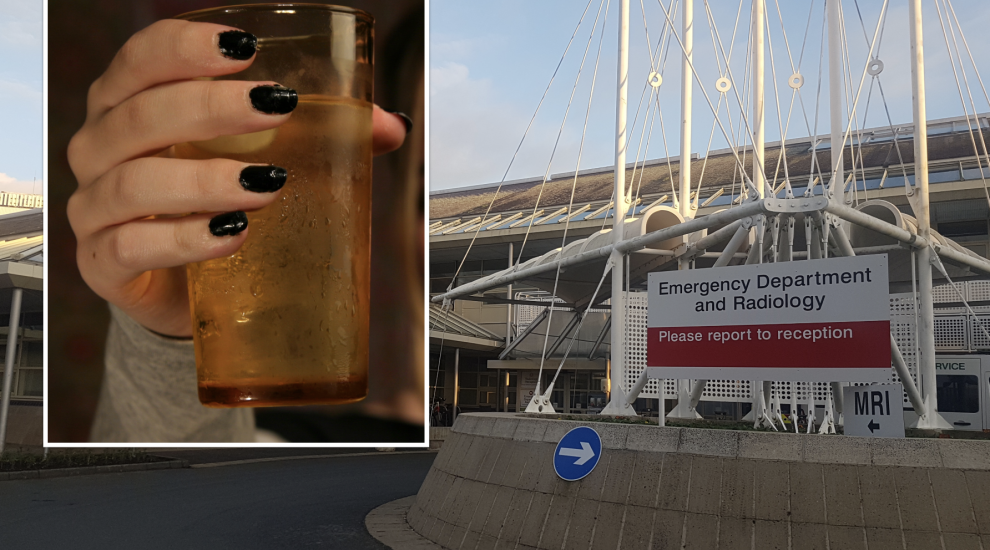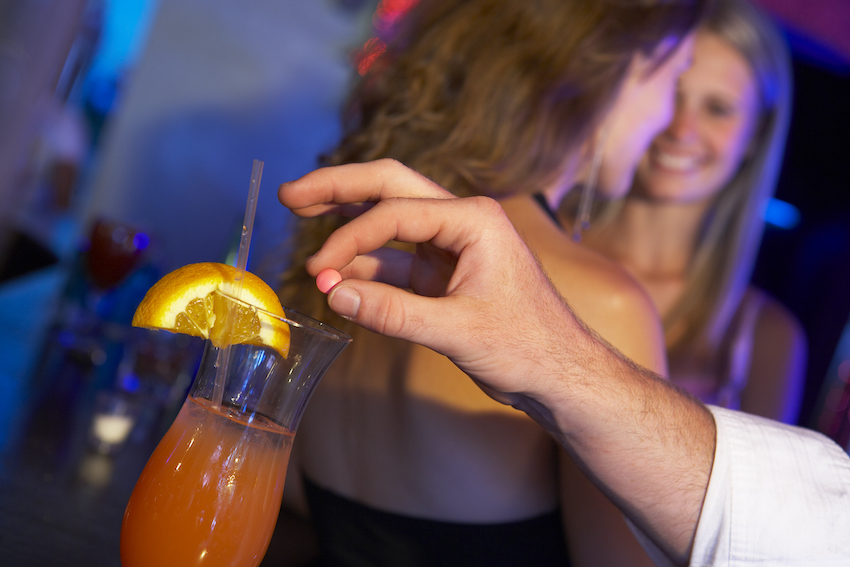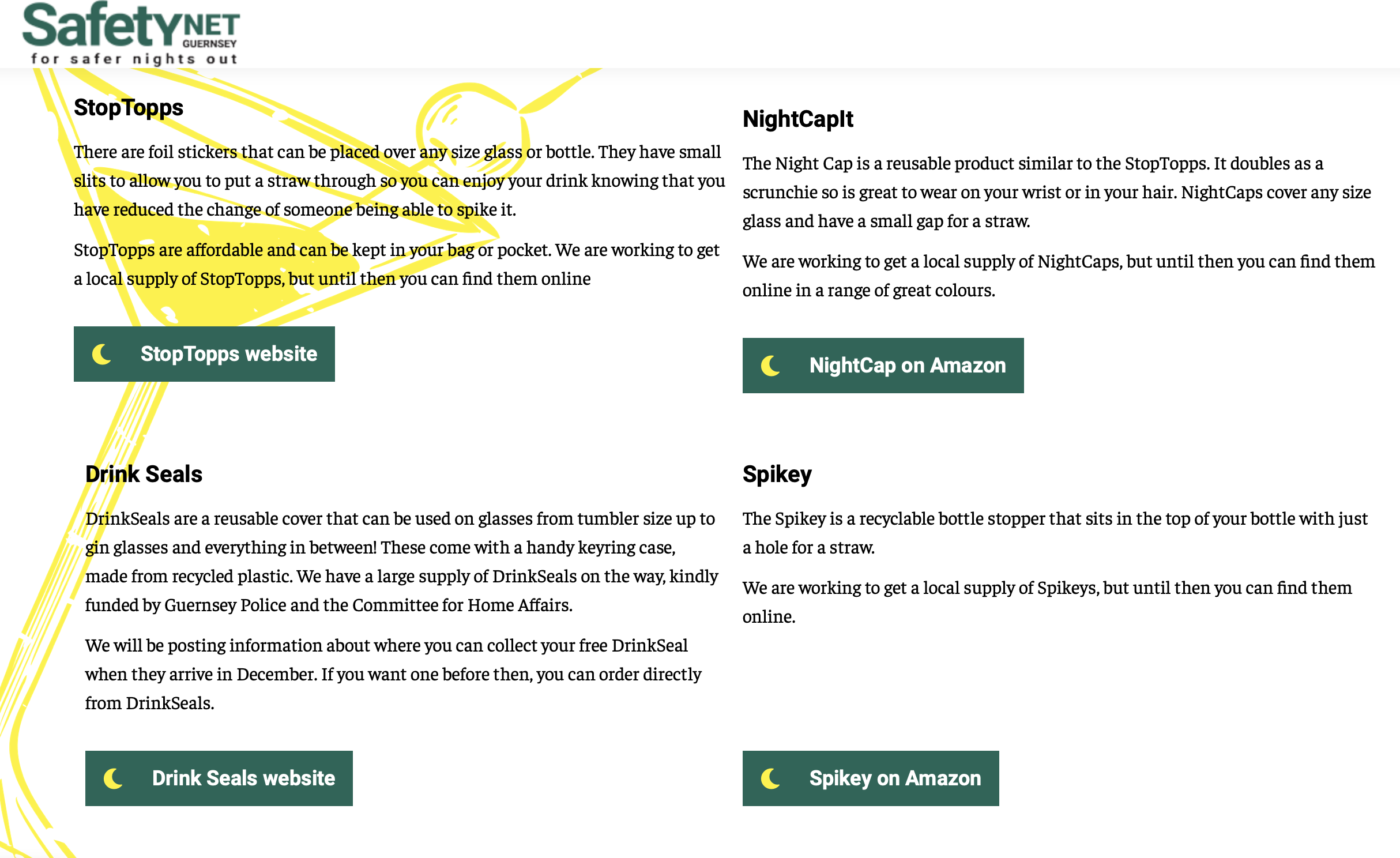


Suspected drink spiking incidents have recently included a man in his 60s, with a personal safety campaigner urging anyone who thinks they may have been a victim to report their concerns to Guernsey Police.
Poppy Murray has offered advice following an alleged increase in instances of spiking over the Christmas and New Year period, despite no incidents being officially reported to police.
The Chair of SafetyNet - a newly formed charity - said she regularly receives messages about drink spiking which can happen to a "broad spectrum of the public", can be done using alcohol or illicit drugs, and can happen to soft drinks as well as alcoholic beverages.
Ms Murray said that the charity "often receives messages from the public saying that they believe either they, or someone they know, has been spiked. These messages have come from a broad spectrum of the public, including one recently from a man in his 60s. There are stereotypes about who could be the victim of spiking but, unfortunately, spiking (with alcohol or an illicit drug) can happen to anyone. It is also important to remember that it can happen to soft drinks".

Pictured: Drink spiking can happen to anyone, of any age, and to alcoholic and non-alcoholic drinks, says a safety campaigner in Guernsey.
Whenever she or the charity are contacted in relation to a suspected drink spiking, Ms Murray said her first move is to suggest that the individual(s) seeks medical attention and they are also signposted to Victim Support.
Suspected victims are also asked whether a report has been made to the police.
"In most cases, we are told that the incident has not been reported," said Ms Murray.
"We understand that there are issues surrounding trust and confidence in the police, however we would suggest that a report is made to give the police the opportunity to investigate these allegations. It is also important to report cases so the police have a record of the frequency of alleged incidents."
One recent incident known to Express was reported to the Emergency Department at the Princess Elizabeth Hospital with a doctor stating that spiking incidents are common.
This view is echoed by Ms Murray even though proving that spiking has happened is incredibly difficult. She says this is why it is so important that incidents are reported and that individuals - male and female and of all ages - take steps to protect themselves.
"While there are no confirmed cases of drink spiking in Guernsey, we often hear anecdotal evidence and we know that there are fears around drink spiking," she said.
"For anyone who is nervous about drink spiking, we would recommend collecting a free DrinkSeal (eco-friendly, reusable drink cover) from Pingquay. We have 4,000 more DrinkSeals on order to be given out to the public free of charge thanks to funding from Guernsey Police. You can also ask for a StopTopp (single use drink cover) at any venue listed on our website."

Pictured: SafetyNet provides a number of safety aids to keep drinks protected from spiking.
"Our website also has links to other drink spiking prevention products. It is important to remember that the only people who need to change their behaviour is perpetrators, but there are products that can help to keep your drink safer if you want to take some control over the situation."
The SafetyNet charity launched late last year with the safety products being given out at late night shopping events, and at bars in St Peter Port ahead of the busy festive period.
Ms Murray said that gave her the opportunity to talk to many people who have experienced drink spiking first and second hand and it has strengthened her commitment to continue her work.
"When we were giving out DrinkSeals at the late-night shopping before Christmas, we had several people tell us their experiences where they believe they were spiked, or a family member or friend was spiked," she said.
"These stories were incredibly hard-hitting and clearly have a lasting impact not only on the victim, but also on those close to them. Again, these stories came from a broad spectrum of the public demographic.
"We know that there are a number of reasons why drink spiking is difficult to prove, and we are going to meet with Guernsey Police to further our understanding of the issues. What we do know is that, if incidents are not reported, then the police do not have an opportunity to help victims."
The last reported incident of spiking to Guernsey Police was on 22 October.
"This represents a small decrease on the number of reports in 2022," said a spokesperson.
"While it is common knowledge that there have been no prosecutions for drink spiking in Guernsey, each report is still robustly investigated. These investigations are aided by early reporting, and we would encourage islanders who believe their drink has been spiked to come forwards as soon as they are feeling well enough. It is important that islanders do make reports so our investigating officers can understand the possible scale of the problem and ensure every instance is looked into.
"If you are out always keep an eye on your drink and do not leave it unattended. If you are concerned about being spiked then you should use a lid, which are currently being provided by the charity SafetyNet, supported by our funding."

Express sought advice from Health and Social Care on what people can do if they think they have been a victim of spiking, or if they think someone else has.
The Director of Public Health, Dr Nicola Brink, said: "If you or your friend feel unwell you should seek emergency medical attention and tell them that that you think or know that someone has spiked you or your friend. You should call an ambulance if the symptoms get worse. Alerting a trusted person - such as a friend, venue staff or host what is happening is very important. Then go a safe place – have a trusted person with you.
"The appearance of the drink may change - There are a few warning signs that a drink may have been tampered with: Look for excess fizziness in your drink, a change in taste or colour, or a foggy or cloudy appearance. Sometimes, however, a spiked drink may present no signs at all."
Dr Brink continued by explaining the signs of spiking you can look out for
"These symptoms usually start within 15 minutes of someone spiking you, depending on what someone has spiked you with. They can last for several hours. It can be difficult to spot the symptoms as they vary depending on what someone spiked you with. They can be similar to having excess alcohol. The person may also feel sleepy, weak and unable to defend themselves.
"They also may experience nausea, dizziness and disorientation. The person may not be aware of what is going on around them and may be confused with poor balance. They may have difficulty communicating and trouble with their vision. The most severe symptoms can include trouble breathing or become unresponsive. If in doubt it is better to seek medical help."
READ MORE...
Safety Net: Improving public safety in the night-time economy
“0% conviction for spiking rate locally”
Comments
Comments on this story express the views of the commentator only, not Bailiwick Publishing. We are unable to guarantee the accuracy of any of those comments.